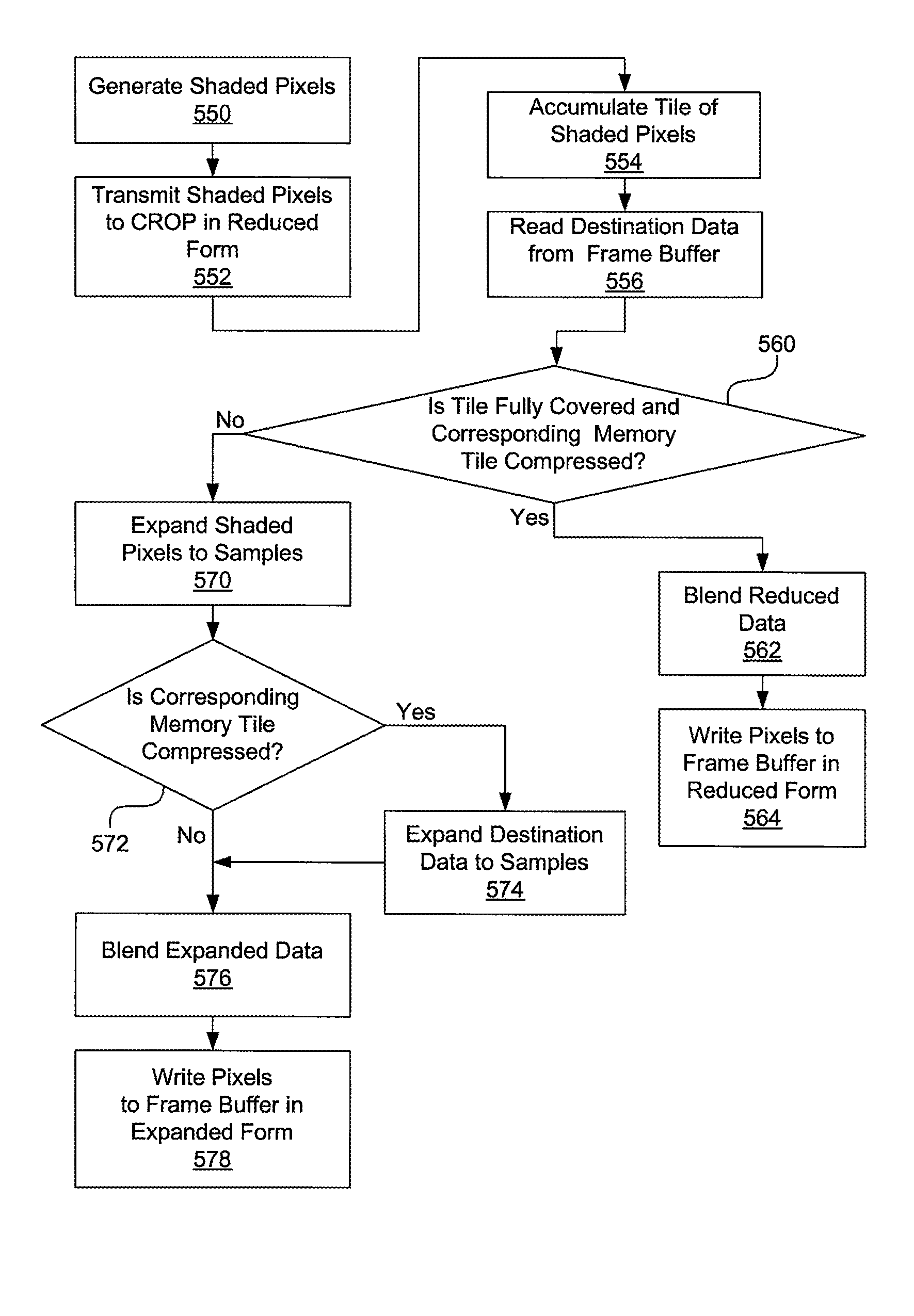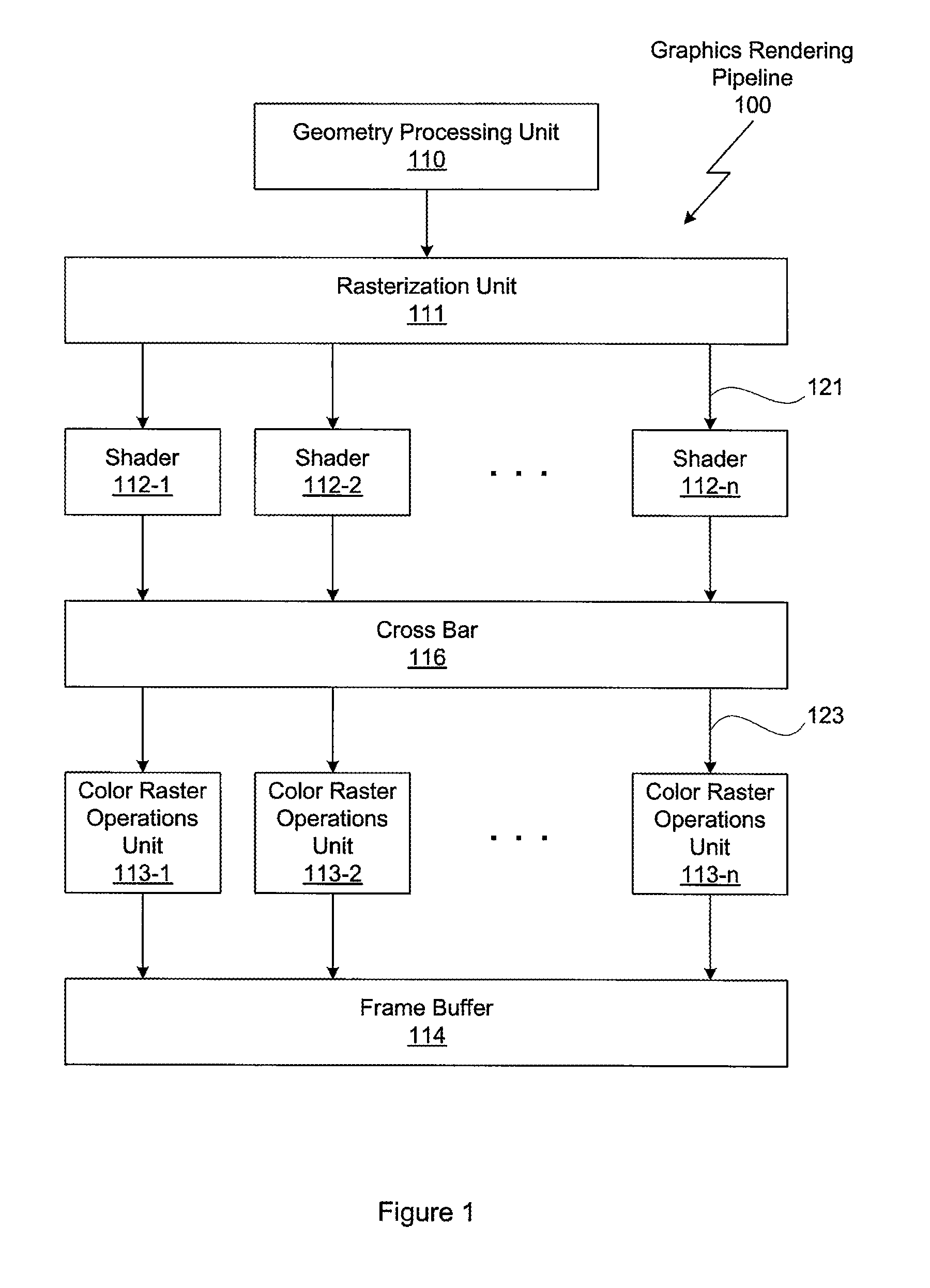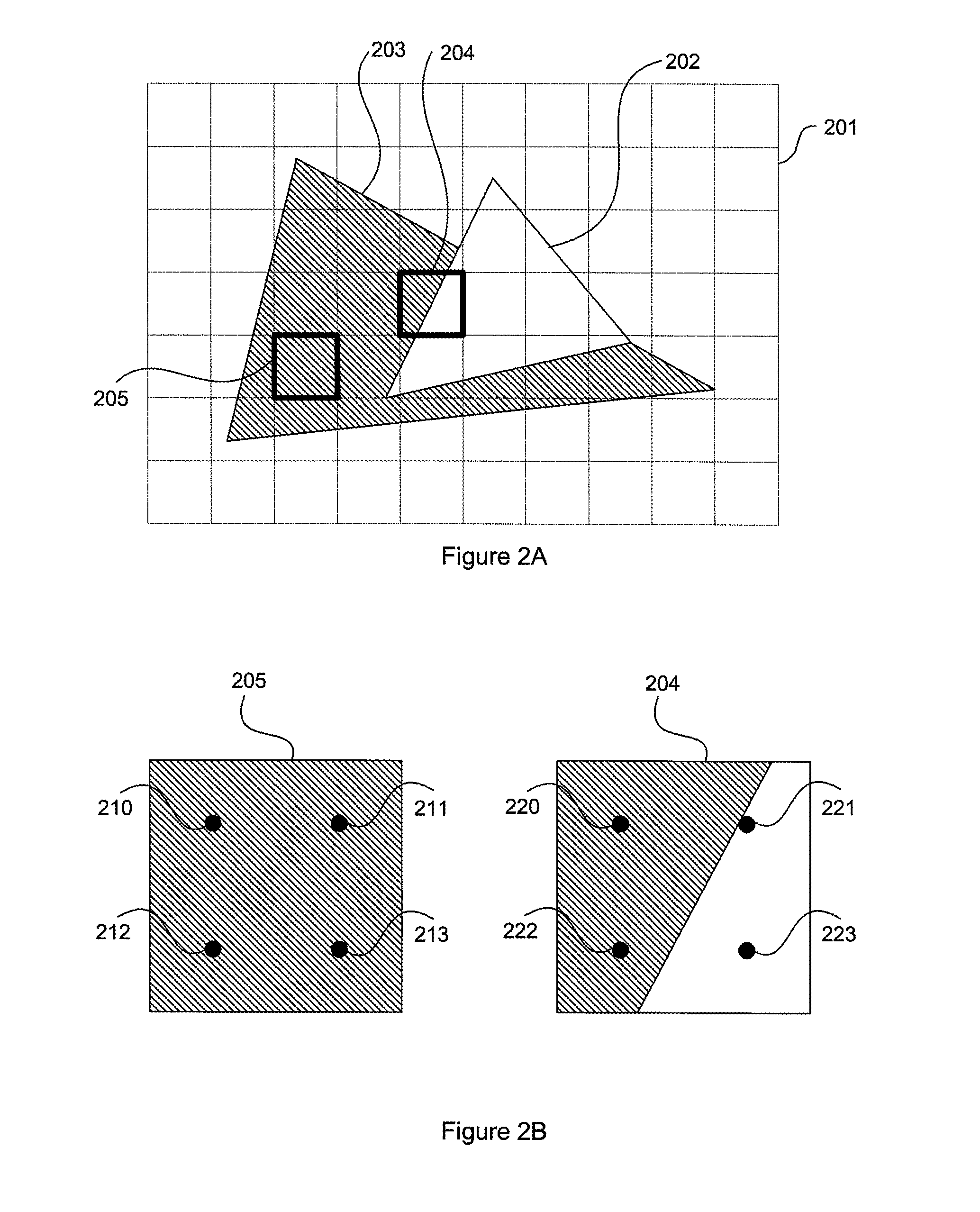Color-compression using automatic reduction of multi-sampled pixels
a multi-sampled, color-compression technology, applied in the field of computer graphics, can solve the problems of limiting system performance, affecting the efficiency the most expensive operation of the graphics rendering engine, so as to reduce the size of the associated logic and the amount of data written
- Summary
- Abstract
- Description
- Claims
- Application Information
AI Technical Summary
Benefits of technology
Problems solved by technology
Method used
Image
Examples
Embodiment Construction
[0023]The present invention improves the overall efficiency of a graphics rendering engine by exploiting a redundancy in anti-aliased color samples to reduce pixel data path processing, thereby improving overall efficiency and simultaneously reducing the bandwidth requirements associated with color buffer access.
[0024]FIG. 1 is a conceptual diagram of a graphics rendering pipeline 100, according to one embodiment of the invention. A geometry processing unit 110 receives geometry primitives, typically triangles, from a graphics application (not shown) and conducts geometric transforms as specified by the graphics application. The output of the geometry processing unit 110 includes triangles transformed and projected onto a two-dimensional surface, referred to as “screen space,” corresponding to a window on the viewer's screen. Alternately, a two-dimensional surface in screen space may be used as the destination rendering surface in applications that do not immediately display rendere...
PUM
 Login to View More
Login to View More Abstract
Description
Claims
Application Information
 Login to View More
Login to View More - R&D
- Intellectual Property
- Life Sciences
- Materials
- Tech Scout
- Unparalleled Data Quality
- Higher Quality Content
- 60% Fewer Hallucinations
Browse by: Latest US Patents, China's latest patents, Technical Efficacy Thesaurus, Application Domain, Technology Topic, Popular Technical Reports.
© 2025 PatSnap. All rights reserved.Legal|Privacy policy|Modern Slavery Act Transparency Statement|Sitemap|About US| Contact US: help@patsnap.com



